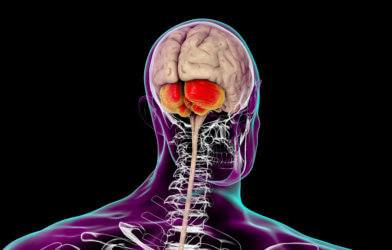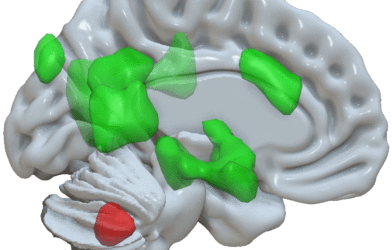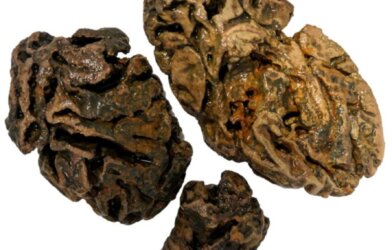Though we might measure a good night’s sleep by how uninterrupted it was, it’s normal and may be even a good sign of a successful sleep if you wake up in the middle of the night. A new study from the University of Copenhagen demonstrates that noradrenaline, a stress hormone and neurotransmitter often associated with stress, is responsible for waking us up during the night a lot more than you might realize.
“You may think that sleep is a constant state that you are in, and then you wake up. But there is a lot more to sleep than meets the eye. We have learned that noradrenaline causes you to wake up more than 100 times a night. And that is during perfectly normal sleep,” says study co-author Celia Kjærby, from the Center for Translational Neuromedicine, in a statement.
This doesn’t mean that someone’s literally waking up 100 times per night, but neurologically the brain is stimulated in the same way as if one is fully awake.
Researchers conducted their work by inserting genetically manipulated light receptors into the brains of test mice. Through this, they were able to measure the levels of noradrenaline in real-time as the animals slept, while comparing it to electrical activity in their brains. After, they conducted memory tests through using implanted equipment to increase size of the noradrenaline waves and improve memory in the animal.
The results showed that during sleep, the level of noradrenaline is consistently increasing and decreasing like waves. Previous research has concluded that noradrenaline is inactive during rest, so these findings are quite surprising.
In this study, high levels of the neurotransmitter signifies that the brain is briefly awake, and low levels signifies a state of complete sleep. “Approximately 30 seconds pass from one ‘top’ to the next, which means that your noradrenaline levels are constantly changing. At the same time, we could tell that the deeper the ‘valley’, i.e. the better the sleep, the higher the subsequent top, and the higher degree of awakening,” explains PhD student and co-author Mie Andersen.
Although a traditional deep sleep is associated with memory, waste product removal, and prevention of neurodegeneration, the findings suggest that mice with the most noradrenaline, or “awake” activity also had the best memory. They were able to determine this by first having the mice sniff at two identical objects. They were then put to sleep, and once awake they were returned to the objects. One of the two objects had now been replaced by a new one. The mice that had seen the most activity were more inclined to study the new object, which suggests that they remembered having seen a different object the first time.
Although these findings were discovered in mice, it’s believed that they can be translated to humans due to similar biological mechanisms that can be found in all mammals. This research may open doors to understanding how antidepressants and other types of medication affect sleep quality.
In the future, the researchers believe that it should be a priority to develop drugs that don’t affect noradrenaline waves during rest.
The study is published in the journal Nature Neuroscience.







-392x250.jpg)



